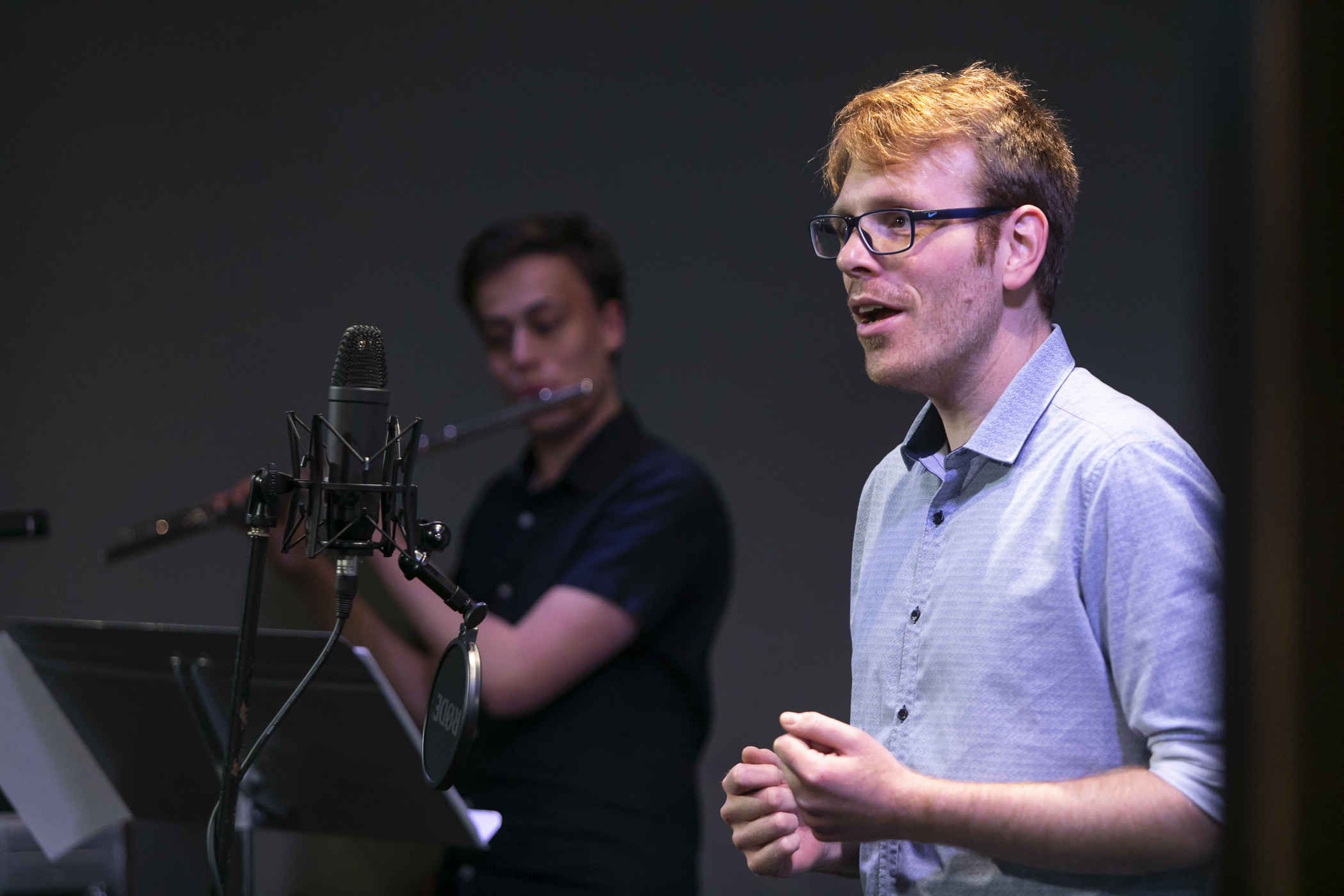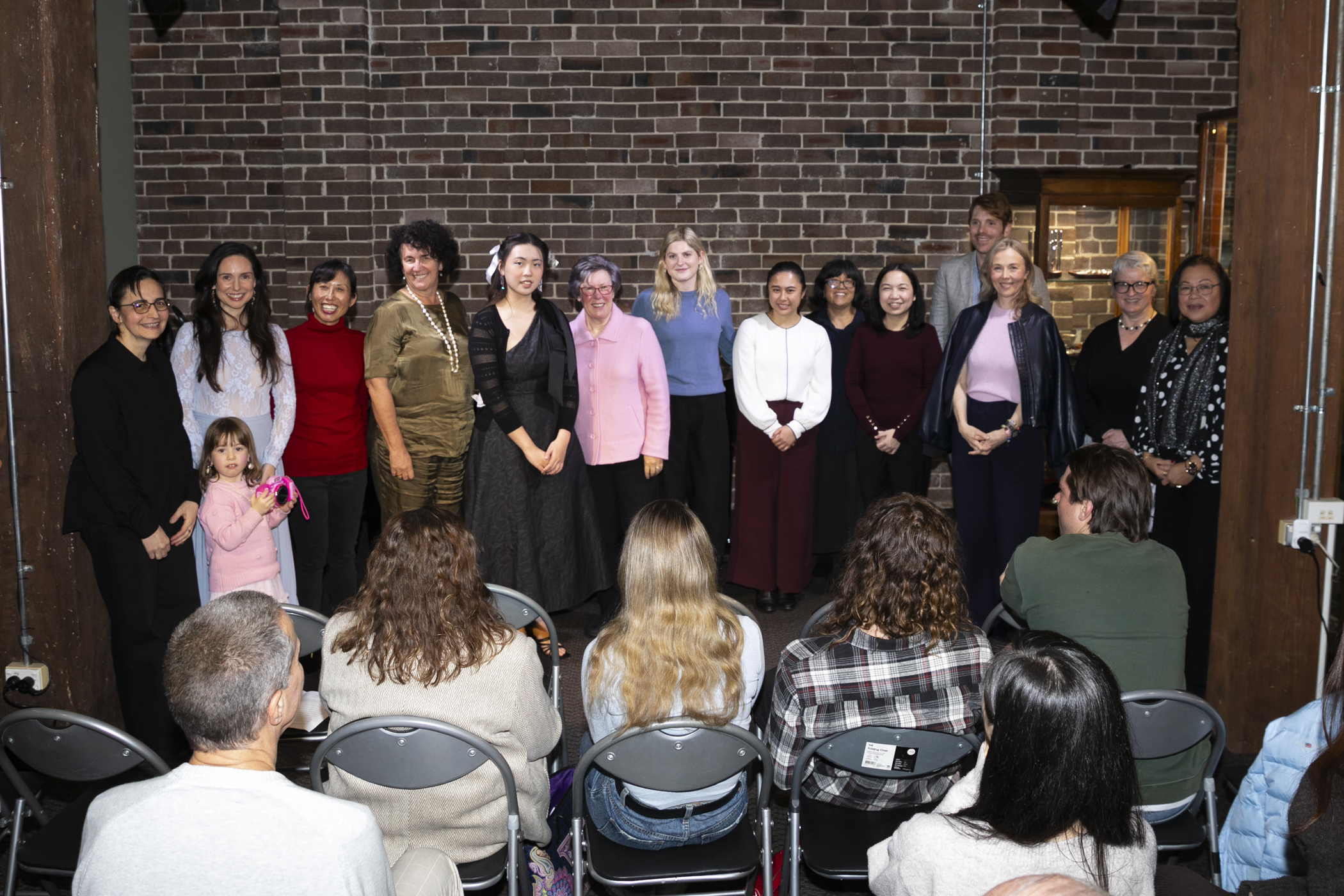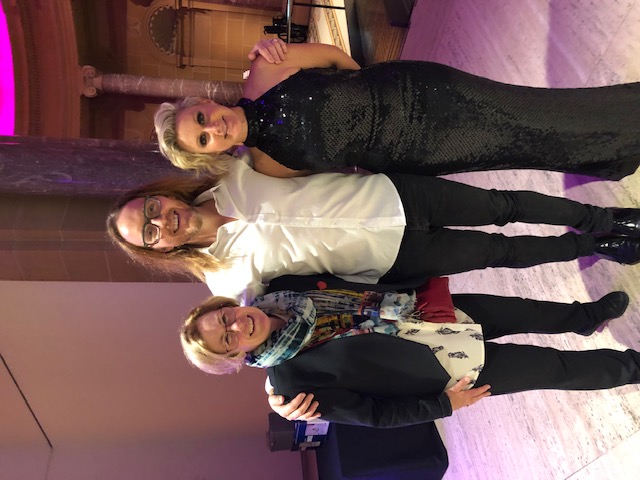How to develop a performer’s mindset by finding your own singing opportunities
Singing in performance is a completely different experience to singing when you practise. Nerves, the environment, acoustics and other variables can get in the way. In fact, when you perform, it’s thought you lose 20% of the skill, zing and focus you have when practising. So, using a studio singer’s own experience, we’ll look at how finding your own singing opportunities and working towards them helps build courage and a performer’s mindset.
Anne Richardson often felt – like many singers – that she needed permission to perform. She has worked with me for a few years, developing a series of songs in French, but, aside from our studio concert, she didn’t have a venue to perform them. So, she took the bold step of finding a place. One day, she wandered into St Stephens Uniting Church in Sydney’s Macquarie Street where she saw a performance of new works for piano and saxophone. She contacted the organisers, and is now working toward a recital of French songs to be held there on 5 July, close to Bastille Day.
In March, Anne’s accompanist Alison, another studio singer, Joanna, and myself held an hour-long workshop to help build Anne’s performance experience and confidence.
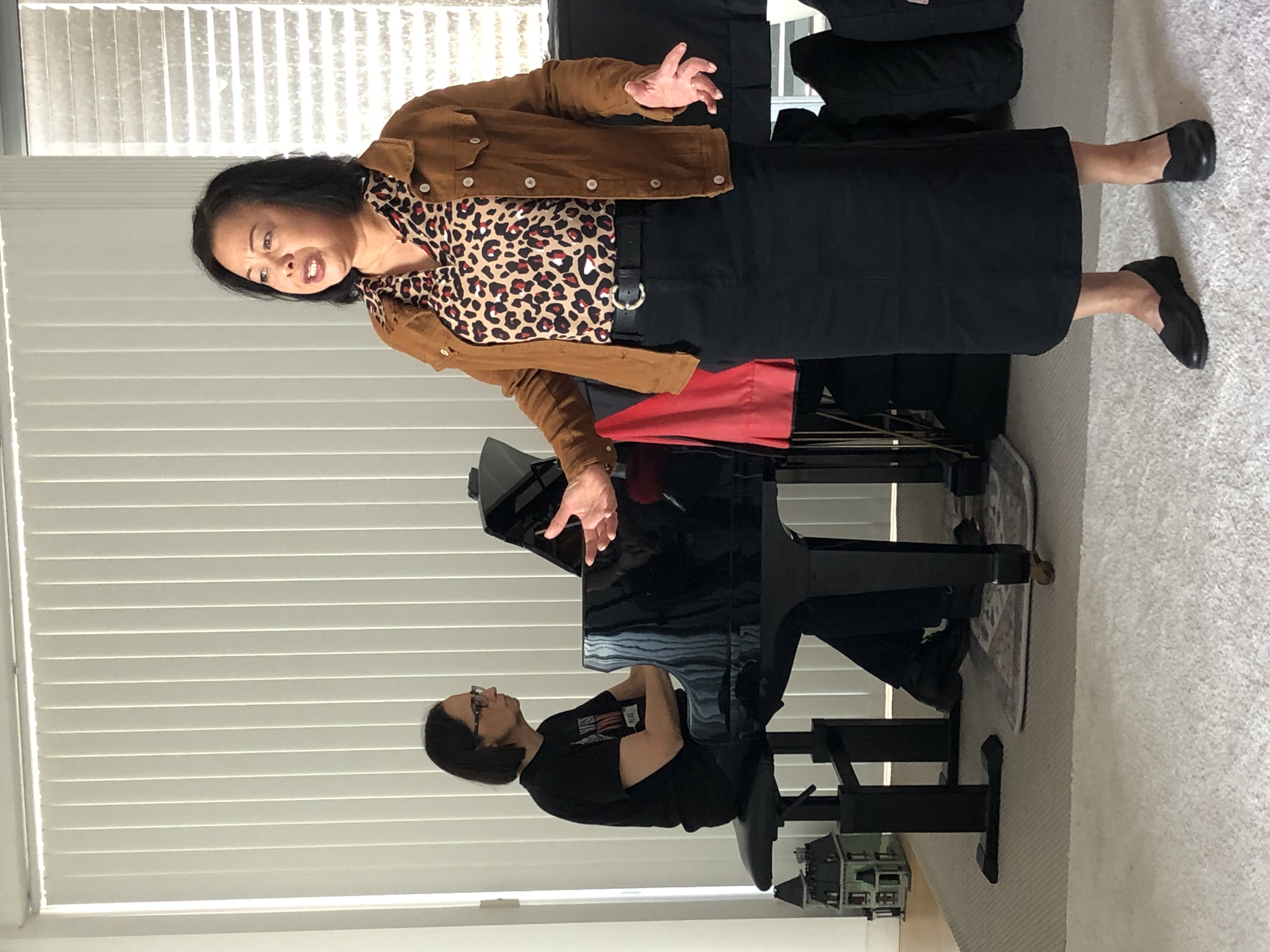
Anne’s accompanist Alison, another studio singer, Joanna, and myself held an hour-long workshop to help build Anne’s performance experience and confidence.
Here are some insights from the workshop and Anne’s ongoing preparation.
Start with the right song for you
Choosing the right song material is an early, important step. Working on material that doesn’t suit your voice or personality can set you up for disappointment. Anne chose material that would showcase her strengths of open head voice, strong chest voice, and excellent tone, through songs that spoke to her about emotions she cherishes. Love in all its guises features strongly in all Anne’s songs. This helps her focus on positive thoughts and cues such as: “Release and open for breath” or “Trust your breath flow for long phrases,” for secure vocal technique, rather than negative cues, such as: “Don’t make a mistake,” or “You’re not getting good breath connection”.
Push through anxiety and negative thoughts
Early on, I’d asked Anne to write down every anxious thoughts she had about performing and to develop a timeline to prepare for the performance. She set dates for memorising lyrics, learning the words as if speaking poetry, and had specific goals for each lesson and our workshop. Having clear goals instils confidence.
Replacing negative thoughts with positive, empowering thoughts is a skill we can all cultivate. For Anne, this has meant pushing away times she felt powerless as a performer and focussing on times when she had positive experiences, or on those lessons where everything went well.
We took some of Anne’s anxiety points, such as posture, gesture and vocal style to work on. Working regularly with Alison built Anne’s confidence in her musicianship, such as rhythm, pitching and tempo choices. Before the recital date, we’ll revisit her written thoughts and see how she’s progressing.
Picture your performance to improve success
Every time Anne had a coaching session, she worked as if in the actual performance, visualising the performance space, potential audience, and the whole experience. Doing this has been shown in research to benefit performers. Video recording performances and practice also helps you appraise your stage presence. As we’d recorded Anne’s previous studio concert performances, we could watch and workshop these. Our city studio also has access to video recording and using this space helped Anne refine her observations.
Focus your practice and don’t overdo it
Practice certainly helps alleviate anxiety, but there can be a point when over practising becomes a chore and not beneficial to your goal. Anne sometimes over practises and does so with negative thoughts. Learning how to manage these during practice is important, because they will pop up in performance and be problematic. So, Anne worked in increments, targeting her practice on certain issues rather than tackling every song from beginning to end.
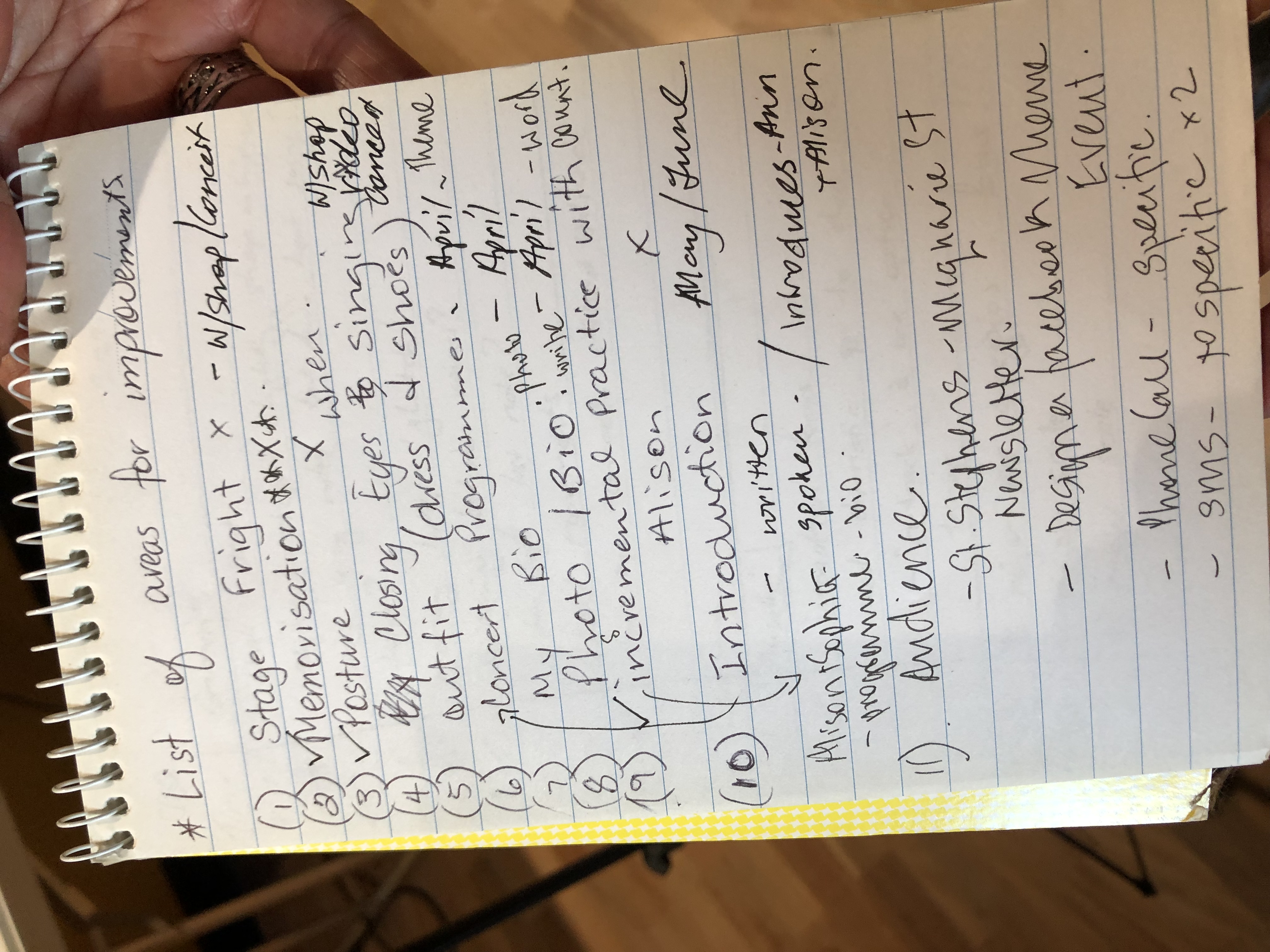
Anne’s 2024 Recital Plans
Anne’s feedback:
“I am pleased with the outcome of the workshop. It has given me the opportunity to learn more, based on the feedback from you and Alison. I need to focus more and prepare my pieces by doing incremental practice every day on issues including:
– improve my overall posture, intention and eye movement during performance
– know the song thoroughly, learn its expression and feelings
– spend time on memorising and repetition
– focus on strategic breathing, and the note ahead before going to the next phrase
– get used to the venue, and the audience in my mind
– improve mistakes taken from video.”
In the next two blogs, we’ll include brief updates on Anne’s preparation ahead of her performance.
You’re welcome to attend the recital at St Stephens Uniting Church, 197 Macquarie Street, Sydney, on Friday 5 July, at 1pm.
A personalised workshop with Kathleen Connell is a great way to prepare for an upcoming performance or audition. Browse the in-person or online lesson options, or call 0402 409 106.


